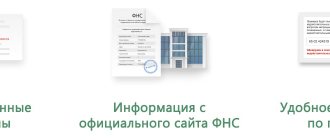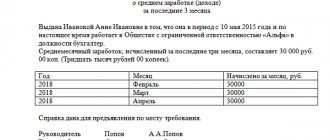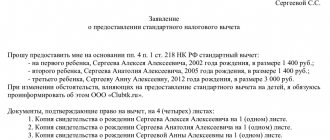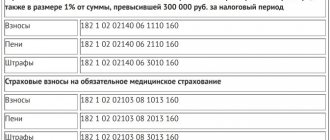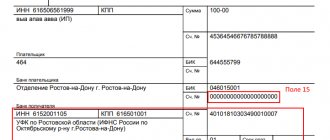Is it necessary to apply professional standards in modern organizations?
Professional standards are qualification requirements established at the level of legal acts for employees of certain professions, compliance with which is necessary from the point of view of these employees performing their labor functions (Article 195.1 of the Labor Code of the Russian Federation). Professional standards are mandatory for use by employing firms in two cases (Article 195.3 of the Labor Code of the Russian Federation, letter of the Ministry of Labor of the Russian Federation dated April 4, 2016 No. 14-0/10/B-2253):
- the employing company has positions on its staff for which benefits and compensation should be provided - for example, for hazardous working conditions;
- the use of professional standards is prescribed by a specific legal act.
The first rule should be followed by all enterprises, regardless of whether they are private or public (municipal). The second norm in practice characterizes legislative regulation mainly of those business entities that have a direct connection with state or local authorities.
The Government of Russia, by resolution No. 584 of June 27, 2016, prescribed:
- all state and municipal institutions, funds, as well as enterprises, companies and corporations that belong to state or municipal authorities (with the right of ownership of more than 50% of the authorized capital), apply professional standards in terms of qualification requirements;
- until 01/01/2020, the specified business entities should develop and implement plans for the implementation of professional standards;
- the specified business entities apply professional standards for new positions in accordance with the plan and provisions of Resolution No. 584.
Thus, professional standards are now mandatory:
- for state and municipal institutions, funds;
- for companies, enterprises and corporations, the authorized capital of which is more than 50% owned by state or municipal bodies;
- for all employer firms - including private ones, in which there are positions that provide the employee with benefits established by law;
- for business entities - private, state, municipal, for positions for which adherence to professional standards is prescribed by separate regulations
So, for example, in accordance with Art. 7 of Law No. 402-FZ dated December 6, 2021, professional standards are applicable to chief accountants of public joint stock companies, insurance companies, non-state pension funds, banks and financial organizations, as well as ordinary outsourced accountants.
In other cases, it is legitimate to consider professional standards as recommended for use (this position is supported by the Ministry of Labor of the Russian Federation in letter No. 14-0/10/B-2253).
Let us next consider for which positions professional standards can be established.
How can I figure out who is obliged to apply professional standards and who is not?
For several months now, there have been ongoing conversations – and even disputes – about the mandatory nature of professional standards from July 1st. Experts disagree. Some argue that only government organizations should apply them, others say that professional standards will become mandatory for all companies without exception.
The Ministry of Labor has put an end to the debate about the mandatory nature of professional standards. In the Information dated April 5, 2016 “On the application of professional standards,” the department emphasized that the provisions of professional standards are generally advisory in nature. Their requirements are mandatory only in cases provided for by law. Thus, according to the new article 195.3 of the Labor Code of the Russian Federation, they must be applied by employers in terms of the requirements they contain for the qualifications necessary for an employee to perform a certain labor function, provided for by the Code, other federal laws, and other regulatory legal acts of the Russian Federation. For example, it is mandatory to apply standards in relation to employees of educational institutions (Part 1, Article 46 and Part 2, Article 52 of the Federal Law of December 29, 2012 No. 273-FZ); chief accountants of insurance organizations, non-state pension funds, joint-stock investment funds and some other organizations (Part 4 of Article 7 of the Federal Law of December 6, 2011 No. 402-FZ); drivers (Article 328 of the Labor Code of the Russian Federation).
Thus, from July 1, 2016, employers will be required to apply professional standards if the qualification requirements that an employee needs to perform a certain job function are established by the Labor Code, federal laws or other regulatory legal acts (Federal Law of May 2, 2015 No. 122 -FZ).
For which positions and industries are professional standards required?
The list of professional standards currently approved is huge. In particular, the relevant standards have been adopted for positions in the following areas:
- education;
- healthcare;
- culture, art;
- social services;
- sport;
- connection;
- IT, communications;
- management;
- finance;
- jurisprudence;
- media activities;
- security activities;
- agriculture, forestry, fish farming, hunting, fishing;
- construction;
- housing and communal services sector;
- transport;
- oil and gas production and processing;
- electric power industry;
- light, textile industry;
- food industry;
- woodworking industry, furniture industry;
- nuclear, rocket industry;
- chemical industry;
- metallurgy;
- mechanical engineering;
- shipbuilding;
- automotive industry;
- provision of services to the population, etc.
Thus, professional standards have been adopted for positions in which specialists work in virtually all major sectors of the Russian economy. In general, professional standards are adopted by the Ministry of Labor of the Russian Federation and approved by separate orders. For example, the professional standard “Accountant”, applicable in the cases noted above, provided for by Law No. 402-FZ, was approved by Order of the Ministry of Labor of the Russian Federation dated December 22, 2014 No. 1061n.
What are professional standards and why are they needed?
The professional standard is a “young” concept; it appeared in the Labor Code only at the end of 2012, when the Labor Code was supplemented with Article 195.1 “Concepts of employee qualifications, professional standards.”
From July 1, an updated version of this article will be in effect. It provides a definition of the concept of “professional standard”. This is a characteristic of the qualifications necessary for an employee to carry out a certain type of activity, including performing a certain job function. Professional standards contain requirements for knowledge, skills, abilities and work experience. Such standards have been developed for representatives of most professions (for example, teachers, programmers, recruiters, waiters, etc.). The need to adopt professional standards was caused by the fact that the job characteristics contained in the Unified Qualification Directory did not correspond well to current reality.
Professional standards are used by employers in the formation of personnel policies and personnel management, in organizing training and certification of employees, developing job descriptions, charging work, assigning tariff categories and establishing remuneration systems, taking into account the specifics of the organization of production, labor and management.
Mandatory professional standards: implementation
An enterprise that, due to legal requirements, is obliged to apply professional standards must introduce them into its personnel management model. If it is state or municipal, then the algorithm for such actions is approved by Resolution No. 584. It contains instructions to state or municipal organizations:
- develop a plan for the implementation of professional standards;
- implement it before 01/01/2020;
- ensure the application of professional standards in new positions in accordance with the plan.
Thus, organizations formed before 2022 were obliged to bring their personnel management systems in accordance with Resolution No. 584. In practice, this could happen through the issuance by employers of orders on the implementation of professional standards, according to which responsible employees were required to develop and implement an appropriate plan. Orders could be supplemented with special provisions defining how responsible employees should act when implementing corporate standards established by the order.
To solve the tasks provided for by the order, commissions or working groups of specialists could be organized - this could also be fixed by a separate order and a provision supplementing it.
State and municipal organizations created starting from January 1, 2022 must ensure that human resource management systems comply with the requirements set out in Resolution No. 584, from the moment of establishment by higher structures. And in the course of activities, monitor changes in existing professional standards, as well as implement emerging new ones. First of all, using the register of professional standards, which is available on the website of the Russian Ministry of Labor. There you can also get acquainted with draft professional standards and prepare for their implementation even before their official approval.
The introduction of new professional standards can be carried out in an institution in accordance with a special schedule based on the orders of the head, as well as taking into account the action plan for the implementation of a particular professional standard.
Who is covered?
The list of legal entities obligated to apply these requirements in their activities is established by Decree of the Government of the Russian Federation of June 27, 2016 No. 584. These include:
- state extra-budgetary funds of the Russian Federation;
- state and municipal organizations;
- State unitary enterprises and municipal unitary enterprises;
- state corporations, state-owned companies, economic entities with a state share of participation above 50%.
Enterprises in which the share of state participation exceeds 50% introduce the application and implementation of professional standards gradually, until 01/01/2019. Other institutions are required to strictly comply with the requirements of professional standards (Article 195.3 of the Labor Code of the Russian Federation).
The content of professional standards was also influenced by the law regarding the contract system. Article 9 of Federal Law No. 44-FZ defines the professional basis as the basic principle of public procurement. Employees who are professionals in the field of ordering are invited to work. The customer is obliged to provide conditions not only for improving the level of qualifications of workers, but also for maintaining it. This installation is confirmed by Part 6 of Art. 38 FZ-44, according to which, for example, a contract service employee or a contract manager must have higher and additional professional education.
When creating a procurement commission, the institution must take into account professional standards, because the priority right to be included in its composition is given to employees (Part 5 of Article 39 of Federal Law No. 44):
- having professional retraining;
- those who have undergone advanced training;
- having special knowledge in the field of ordering.
Mandatory application of professional standards by merchants
If there are grounds obliging a commercial company to follow professional standards, it has the right to implement professional standards, guided by the algorithm that is implemented at state-owned enterprises in accordance with Resolution No. 584. There are no separate regulations for businessmen.
Commercial organizations can apply professional standards voluntarily. Sign up for a free trial access to ConsultantPlus and find out the pros and cons of this solution, as well as familiarize yourself with the algorithm of actions when introducing a professional standard.
Results
Professional standards are mandatory for all government agencies and municipal business entities, as well as for private firms that have positions that provide benefits to employees, as well as those in respect of which the use of professional standards is prescribed by law. Professional standards are established by orders of the Ministry of Labor of the Russian Federation. Their implementation in government agencies is carried out on the basis of Decree of the Government of the Russian Federation No. 584, in private firms - on the basis of special norms of federal legislation (as is the case with the provisions of Article 7 of Law No. 402-FZ)
You can learn more about the implementation of professional standards in the articles:
- “Law on professional standards since 2016 - latest changes”;
- “Professional standard for occupational safety specialist.”
You can find more complete information on the topic in ConsultantPlus. Free trial access to the system for 2 days.
